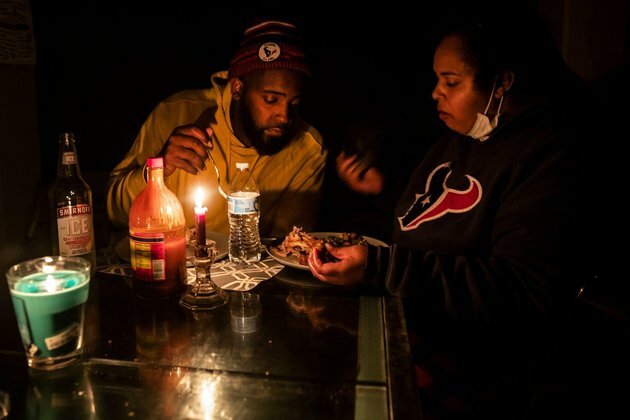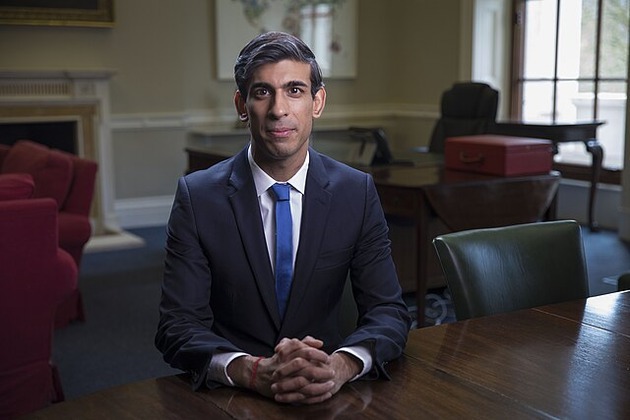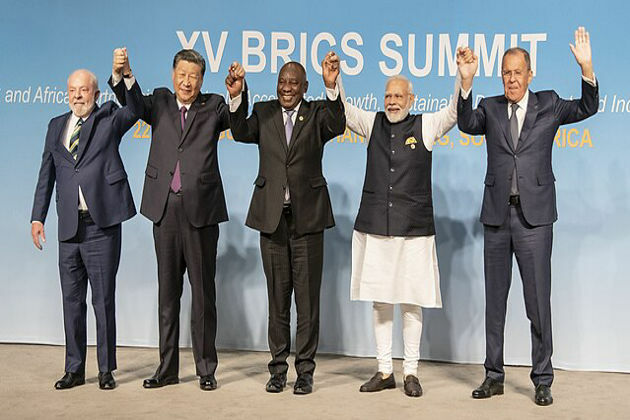Texas blackouts show us why energy should be considered a universal right
The Conversation
24 Feb 2021, 00:11 GMT+10

An unprecedented cold wave in the US state of Texas recently left several million households without power for days on end, as temperatures dropped well below freezing. Dozens of people died from hypothermia, car crashes, house fires or carbon monoxide poisoning from running cars or generators simply to keep warm.
The particular circumstances that led to such widespread grid failure, including how the state has chosen to organise and run its electricity infrastructure, are being loudly debated. There are, though, wider issues to consider.
Blackouts, of whatever cause, always reveal a deeply rooted dependence on flows of energy to power the rhythms of modern living and keep day-to-day health and well-being in balance. When the power fails, the consequences can be devastating. Those most vulnerable to the cold or heat - older people in particular - and those living in poor quality housing, can die as a consequence of technologies losing their power. This adds to the background toll of "excess deaths" linked to energy poverty on an annual basis.
At moments like this, the basic rights of citizens to infrastructures that work are called into question, not just in Texas, but far beyond. In my academic research I have looked at what it would mean to make energy a universal right. Surely we should now be asserting this basic right, including for the 10% of the global population without access to even basic electricity provision?
At first sight the case is compelling. After all, energy enhances many of the basic capabilities of a decent life, not only good health, but also education, communication, livelihood, self-respect and conviviality. But as with many assertions of fundamental rights, details and interpretations matter.
Energy that works
Having an infrastructure in place is fundamental, but it needs to be one that works, that is well maintained and is resilient, including in the face of the types of (predictable) climate change-induced extremes experienced in Texas. Energy bills also need to be affordable, with cost structures that do not penalise those on low incomes and that ensure that a baseline of access can be sustained when times are hard, or needs are most intense.
In the UK, households have a legal right to not be disconnected from the water supply, but they can be disconnected from energy, including when the money runs out in pre-payment meters found in many low-income households - a process known as "self-disconnection". Policies are in place to protect categories of energy-vulnerable households, overseen by the regulator Ofgem, but a universal right to electricity or gas connection does not exist.
Regulatory structures matter, and experience has shown that the state cannot just leave energy provision to the unfettered market, with profit above all else determining how energy is supplied and consumed. It can instead enforce clear social obligations on energy suppliers, or it can take electricity infrastructure into public ownership. But either way, the state has a responsibility it cannot shirk to ensure what should be basic rights for its energy-consuming citizens.
A right to low carbon living
Two further important considerations also have to be factored into a general notion of the right to energy. First, we should be doing all we can to ensure that the energy that is used, is used well - it is madness to be putting energy into homes and other buildings, for it then to leak out again so easily.
This highlights that nobody really wants to consume energy per se. It is the heat, light, cool, communication, mobility and so on that are really valued and that really matter. There should therefore be much more focus on realising such services in ways that minimise energy use and energy bills, and cutting energy demand as part of zero carbon trajectories.
Second, the citizen's right to energy has now to be asserted as a right to low carbon energy, or more generally as a right to low carbon living. There is some irony that Texas, a US state so deeply implicated in fossil fuels, is now experiencing a hard kick back from climatic change. Maybe in a post-Trump world that irony will not be so readily ignored.
In a climate emergency, the right to energy cannot be realised through old energy infrastructure, using old models of carbon-heavy generation. Universal provision is crucial, but the right to energy and the right to low carbon living have to work hand in hand, if we are to avoid further deepening the consequences of the climate crisis in Texas and many other parts of the world.
Author: Gordon Walker - Professor at the Lancaster Environment Centre and previously co-director of the DEMAND Centre, Lancaster University 
 Share
Share
 Tweet
Tweet
 Share
Share
 Flip
Flip
 Email
Email
Watch latest videos
Subscribe and Follow
Get a daily dose of Pakistan Telegraph news through our daily email, its complimentary and keeps you fully up to date with world and business news as well.
News RELEASES
Publish news of your business, community or sports group, personnel appointments, major event and more by submitting a news release to Pakistan Telegraph.
More InformationInternational
SectionFaulty IT system at heart of UK Post Office scandal, says report
LONDON, U.K.: At least 13 people are believed to have taken their own lives as a result of the U.K.'s Post Office scandal, in which...
Travelers can now keep shoes on at TSA checkpoints
WASHINGTON, D.C.: Travelers at U.S. airports will no longer need to remove their shoes during security screenings, Department of Homeland...
Rubio impersonator used AI to reach officials via Signal: cable
WASHINGTON, D.C.: An elaborate impersonation scheme involving artificial intelligence targeted senior U.S. and foreign officials in...
Warsaw responds to migration pressure with new border controls
SLUBICE, Poland: Poland reinstated border controls with Germany and Lithuania on July 7, following Germany's earlier reintroduction...
Deadly July 4 flash floods renew alarm over NWS staffing shortages
WASHINGTON, D.C.: After months of warnings from former federal officials and weather experts, the deadly flash floods that struck the...
Putin fires transport chief, later found dead in suspected suicide
MOSCOW, Russia: Just hours after his sudden dismissal by President Vladimir Putin, Russia's former transport minister, Roman Starovoit,...
Business
SectionEx-UK PM Sunak takes advisory role at Goldman Sachs
NEW YORK CITY, New York: Former British prime minister Rishi Sunak will return to Goldman Sachs in an advisory role, the Wall Street...
Gold ETF inflows hit 5-year high as tariffs drive safe-haven bets
LONDON, U.K.: Physically backed gold exchange-traded funds recorded their most significant semi-annual inflow since the first half...
PwC: Copper shortages may disrupt 32 percent of chip output by 2035
AMSTERDAM, Netherlands: Some 32 percent of global semiconductor production could face climate change-related copper supply disruptions...
U.S. stocks recover after Trump-tariffs-induced slump
NEW YORK, New York - U.S. stocks rebounded Tuesday with all the major indices gaining ground. Markets in the UK, Europe and Canada...
Stocks slide as Trump unveils 25% tariffs on Japan, S. Korea
NEW YORK CITY, New York: Financial markets kicked off the week on a cautious note as President Donald Trump rolled out a fresh round...
BRICS issues rebuke on trade and Iran, avoids direct US criticism
RIO DE JANEIRO, Brazil: At a two-day summit over the weekend, the BRICS bloc of emerging economies issued a joint declaration condemning...













